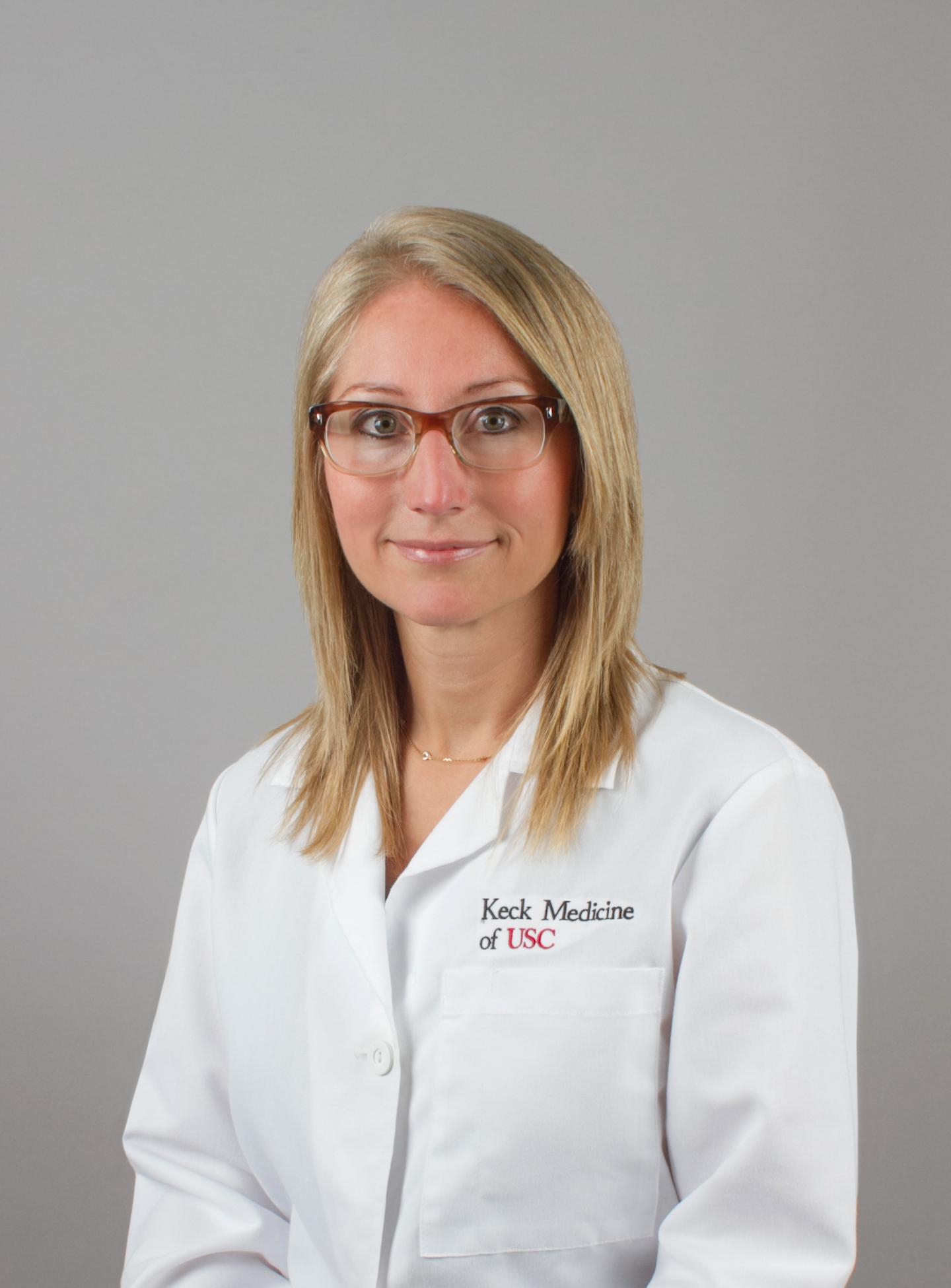Over-the-counter ‘T boosters’ are a popular choice for men looking to raise testosterone levels, and are frequently marketed as an effective ‘natural’ option; research points toward these supplements as having little or no known effect

Credit: Ricardo Carrasco III, Keck Medicine of USC
Men who want to improve their libido or build body mass may want to think twice before using testosterone-boosting supplements – also known as “T boosters” – as research shows these alternatives to traditional testosterone replacement therapy may not have ingredients to support their claims, according to Mary K. Samplaski, MD, assistant professor of clinical urology at the Keck School of Medicine of USC.
“Many supplements on the market merely contain vitamins and minerals, but don’t do anything to improve testosterone,” says Samplaski. “Often, people can be vulnerable to the marketing component of these products, making it difficult to tease out what is myth and what is reality.”
Testosterone is the primary male sex hormone and the reason why men produce sperm and have Adam’s apples. It’s also why men develop more “masculine” features like bulging muscles, a deep voice, broad shoulders and a hairy chest. After age 30, most men experience a gradual decline in testosterone, sometimes causing these features to diminish or new symptoms to occur, like erectile dysfunction. In an attempt to turn back the hands of time, some men will turn to T boosters.
Using a structured review approach, Samplaski and a team of researchers explored the active ingredients and advertised claims of 50 T boosting supplements. Their findings were published as an original article in The World Journal of Men’s Health.
Researchers performed a Google search with the search term “Testosterone Booster,” thus mimicking a typical internet research for someone looking to increase testosterone levels, and then selected the first 50 products that came up in their search. Then, the team reviewed published scientific literature on testosterone and the 109 components found in the supplements. Zinc, fenugreek extract and vitamin B6 were three of the most common components in the supplements.
The team also compared the content for each supplement with the Food and Drug Administration’s (FDA) Recommended Daily Allowance (RDA) and the upper tolerable intake level (UL) as set by the Institute of Medicine of the National Academy of Science.
Of the 150 supplements, researchers came across 16 general claims to benefit patients, including claims to “boost T or free T”, “build body lean mass or muscle mass”, or “increase sex drive or libido.”
While 90% of the T booster supplements claimed to boost testosterone, researchers found that less than 25% of the supplements had data to support their claims. Many also contained high doses of vitamins and minerals, occasionally more than the tolerable limit.
Unlike drugs, supplements are not intended to treat, diagnose, prevent, or cure diseases, according to the FDA. As such, Samplaski would like to see more regulation around testosterone-boosting supplements to protect consumers. She also would like to explore disseminating handouts to her patients with more accurate information in the hopes that it encourages patients to seek a medical professional for low testosterone issues.
While no one can escape the effects of aging, Samplaski says there is something men can do to address their concerns. “The safest and most effective way for men to boost low testosterone levels is to talk with a medical professional or a nutritionist.”
###
About the Keck School of Medicine of USC
Founded in 1885, the Keck School of Medicine of USC is among the nation’s leaders in innovative patient care, scientific discovery, education and community service. The school has more than 1,850 full-time faculty members and voluntary faculty numbering more than 2,400 physicians. These faculty direct the education of approximately 800 medical students and 1,000 students pursuing graduate and postgraduate degrees. The school trains more than 900 resident physicians in more than 50 specialty or subspecialty programs and is the largest educator of physicians practicing in Southern California. Keck School faculty also lead research and education within 24 research-oriented basic science and clinical departments, and seven research institutes across the Health Sciences Campus.
The Keck School was ranked No. 30 in research in the 2020 U.S. News & World Report “Best Graduate Schools” rankings.
For more information, visit keck.usc.edu.
Media Contact
Mary Dacuma
[email protected]
Related Journal Article
http://dx.




